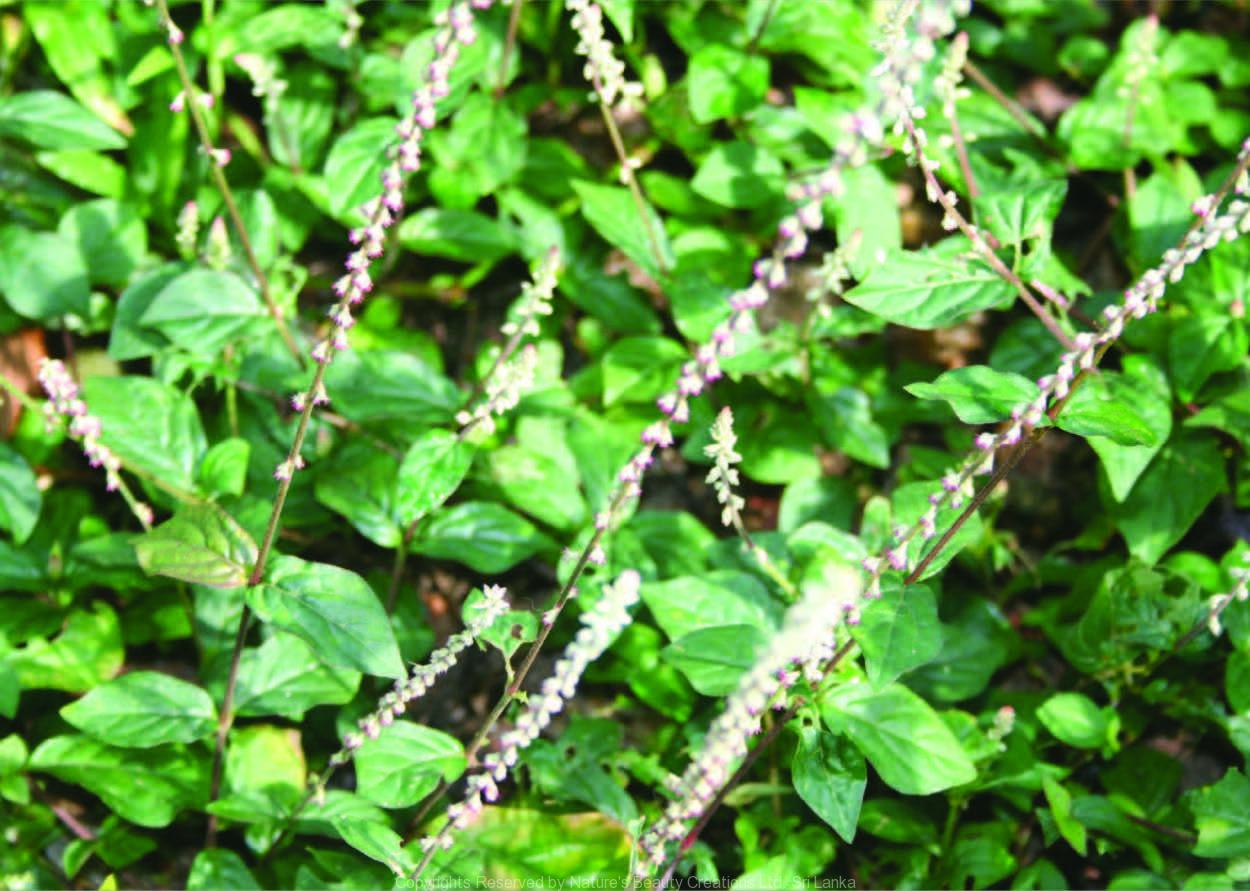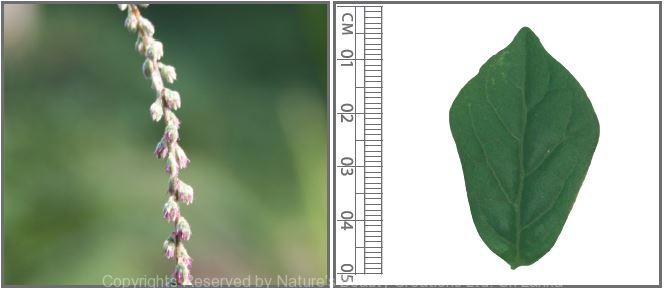

Traditional Knowledge
Useful plant parts :
Leaf and stem
Uses in traditional medicine :
- Decoction of the aerial parts is taken to increase urination
- Taken for cough and dysentery
- Topical application is used for scabies and articular rheumatism
Scientific Research
Chemical constituents:
Ecdysterone from whole plant
Bioactivity :
Alcohol extracts of whole plant: analgaesic, antipyretic, anticancer, anti-inflammatory; aqueous and ethanol extract of leaf, stem, bark and roots: antimicrobial
Clinical:
References : Forestieri, A. M. et al., (1996), Antiinflammatory, Analgesic and Antipyretic Activity in Rodents of Plant Extracts used in African Medicine, Phytotherapy research, 10, 100-106. Ibrahima, B. et al., (2012), Antiinflammatory, analgesic and antioxidant activities of Cyathula prostrata (Linn.) Blume (Amaranthaceae), Journal of Ethnopharmacology, 141(1), 282-289. Kannappan, P. and Sundaram, K. S., (2009), Toxicity assessment of the medicinal plant Cyathula prostrate, Journal of Applied Biosciences, 13, 681-687. Ogu, G. I. et al., (2012), Antimicrobial and phytochemical evaluation of the leaf, stem bark and root extracts of Cyathula prostrata (L) Blume against some human pathogens, J Intercult Ethnopharmacol, 1(1), 35-43 Shah, V. C. and De Souza, N. J., (1971), Amaranthaceae: Ecdysterone from Cyathula prostrate, Phytochemistry, 10(6), 1398-1399. Schnablegger, G. et al., (2010), The anticancer activity of Cyathula prostrata on two malignant cell lines’, MSc thesis, Nelson Mandela Metropolitan University, South Africa.
Copyrights Reserved By
Natures Beauty Creations




